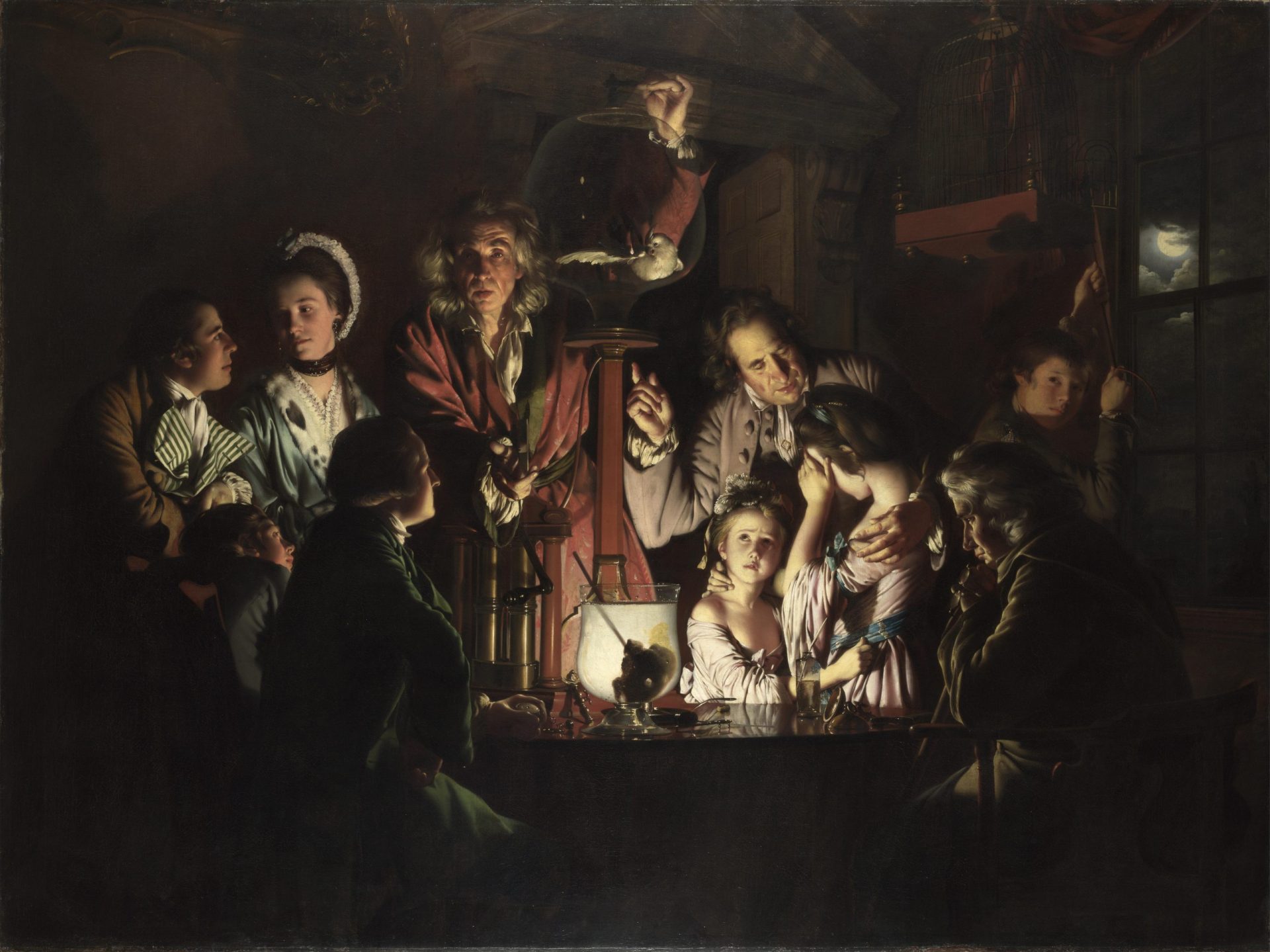Overview
Definition of the Enlightenment Era
The Enlightenment Era, also known as the Age of Reason, was a period in history that spanned from the late 17th century to the late 18th century. It was characterized by a shift in thinking, where reason and rationality became the primary sources of authority and knowledge, replacing traditional religious and monarchic beliefs. This intellectual movement emphasized the power of human reason to understand and improve the world. During this time, philosophers, scientists, and thinkers sought to challenge the existing social and political structures, advocating for individual rights, freedom of thought, and equality. The Enlightenment Era was marked by a rejection of superstition and a focus on empirical evidence and scientific inquiry. It laid the foundation for the development of modern democratic societies and the scientific revolution. Despite the progress made during this era, there was also a continuing fascination with witches and the supernatural, which persisted alongside the rational and scientific advancements of the time.
Key Thinkers of the Enlightenment
The Enlightenment era was marked by the profound ideas and philosophies of influential thinkers who challenged traditional beliefs and paved the way for a new era of intellectual enlightenment. These thinkers, such as Lisa Gornick and Alice Elliott Dark, brought forth revolutionary ideas that questioned the authority of monarchies and religious institutions. They advocated for rationality, individualism, and the pursuit of knowledge through reason and empirical evidence. Their works, including essays, treatises, and novels, were instrumental in shaping the intellectual landscape of the time. Through their writings, they inspired critical thinking and sparked a desire for societal change.
Main Ideas and Principles
The Enlightenment era was characterized by a set of key ideas and principles that shaped the modern world. These ideas emphasized the importance of reason and rationality in all aspects of life, including politics, science, and culture. One of the central concepts of the Enlightenment was the belief in individual liberty and equality. Thinkers like John Locke and Jean-Jacques Rousseau argued that all individuals are born with natural rights and that governments should protect these rights. Another significant idea of the Enlightenment was the notion of separation of powers and the establishment of checks and balances in government. This principle, advocated by philosophers like Montesquieu, influenced the formation of modern democracies. Furthermore, the Enlightenment promoted the scientific method as a means to understand the natural world. Thinkers such as Francis Bacon and Isaac Newton emphasized the importance of empirical observation and experimentation. These principles laid the foundation for the scientific revolution and continue to shape modern science. Overall, the main ideas and principles of the Enlightenment era revolutionized the way people think about politics, science, and culture, and their impact can still be felt in the modern world.
Impact on Politics

The Influence of Enlightenment on the American Revolution
The Influence of Enlightenment on the American Revolution
The Enlightenment era had a profound impact on the American Revolution, shaping the ideals and principles that guided the founding fathers in their quest for independence. Education and liberty were two key concepts that emerged during this period, influencing the development of American political thought. Enlightenment thinkers such as John Locke and Thomas Jefferson emphasized the importance of education in fostering an informed and enlightened citizenry. They believed that a well-educated population would be better equipped to participate in the political process and make informed decisions. The idea of liberty was also central to the American Revolution, as the colonists sought to break free from the oppressive rule of the British monarchy. Inspired by Enlightenment ideas of individual rights and freedom, the founding fathers fought for the establishment of a democratic government that would protect the rights and liberties of its citizens. The influence of the Enlightenment on the American Revolution can be seen in the Declaration of Independence, which proclaims that all men are created equal and have the right to life, liberty, and the pursuit of happiness. This revolutionary document reflects the ideals and principles of the Enlightenment, demonstrating the profound impact of this intellectual movement on the birth of a new nation.
Enlightenment Ideas in the French Revolution
The French Revolution, which occurred from 1789 to 1799, was greatly influenced by the ideas of the Enlightenment. The Enlightenment emphasized the importance of reason, individual rights, and the pursuit of liberty and equality. These ideas played a significant role in shaping the goals and motivations of the revolutionaries. The concept of self-made idea was particularly influential during this period. It emphasized the belief that individuals have the ability to shape their own destinies and that social and economic hierarchies should not limit one’s potential. This idea challenged the traditional notion of divine right and aristocracy, leading to a demand for a more egalitarian society. The French Revolution sought to establish a democratic government and dismantle the privileges of the nobility. It aimed to create a society where all individuals had equal rights and opportunities. The revolutionaries were inspired by Enlightenment thinkers such as Jean-Jacques Rousseau and Voltaire, who advocated for the rights of the common people and criticized the oppressive monarchy. The French Revolution was a turning point in history, marking the transition from absolute monarchy to modern democracy. It set a precedent for future revolutions and had a profound impact on the development of political systems around the world.
Enlightenment and the Formation of Modern Democracies
The Enlightenment era had a profound impact on the formation of modern democracies. It introduced a new way of thinking that challenged the traditional notions of power and authority. Enlightenment thinkers advocated for the principles of reason, individualism, and equality. They believed that all individuals possess inherent rights and should have a say in the governance of their societies. This idea of popular sovereignty, where power is derived from the consent of the governed, laid the foundation for modern democratic systems. The Enlightenment also emphasized the importance of separation of powers and checks and balances to prevent the concentration of power in the hands of a few. These ideas influenced the drafting of important documents such as the United States Constitution and the French Declaration of the Rights of Man and of the Citizen. The Enlightenment era’s emphasis on rationality and enlightened self-interest also contributed to the development of political systems that prioritize the well-being and prosperity of the people. The legacy of the Enlightenment in the formation of modern democracies is evident in the adoption of democratic principles and the recognition of individual rights in many countries around the world.
Impact on Science and Reason

The Scientific Revolution and the Enlightenment
The Scientific Revolution, which took place in the 16th and 17th centuries, laid the foundation for the Enlightenment era. During this time, scientific thinkers like Galileo Galilei and Isaac Newton challenged traditional beliefs and embraced empirical observation and reason as the basis for understanding the natural world. The Enlightenment built upon these scientific advancements and expanded the application of reason to all areas of human life. Enlightenment thinkers such as René Descartes and John Locke emphasized the importance of rational thought and individual rights. They believed that through the use of reason, humans could discover universal truths and improve society. This emphasis on reason and individualism had a profound impact on various fields, including politics, science, and arts. The Enlightenment era marked a shift towards a more evidence-based and progressive approach to knowledge, laying the groundwork for the modern world.
Enlightenment Thinkers and the Scientific Method
During the Enlightenment era, thinkers such as Francis Bacon, René Descartes, and Isaac Newton revolutionized the way we approach scientific inquiry. These influential philosophers and scientists emphasized the importance of using reason and empirical evidence to understand the natural world. Francis Bacon, known as the father of the scientific method, advocated for systematic observation, experimentation, and inductive reasoning. René Descartes, on the other hand, emphasized the role of deductive reasoning and mathematical analysis in discovering universal truths. Isaac Newton, through his groundbreaking work in physics and mathematics, developed the laws of motion and universal gravitation, laying the foundation for modern physics. The scientific method, as developed by these Enlightenment thinkers, continues to be the cornerstone of scientific investigation and discovery to this day. It involves formulating hypotheses, conducting experiments, analyzing data, and drawing conclusions based on evidence. The scientific method has not only advanced our understanding of the natural world but has also paved the way for technological advancements and innovations that have transformed society.
Enlightenment’s Legacy in Modern Science
The Enlightenment era had a profound impact on the field of science, laying the foundation for modern scientific advancements. During this period, thinkers emphasized the importance of reason, observation, and experimentation in understanding the natural world. One of the key legacies of the Enlightenment in modern science is the development of the scientific method. Enlightenment thinkers such as Francis Bacon and René Descartes advocated for a systematic approach to scientific inquiry, which involved formulating hypotheses, conducting experiments, and analyzing data. This methodological approach revolutionized the way scientific knowledge was acquired and validated, leading to significant breakthroughs in various disciplines. Additionally, the Enlightenment era also witnessed advancements in fields such as astronomy, physics, and biology. Scientists like Isaac Newton, Galileo Galilei, and Carl Linnaeus made groundbreaking discoveries that expanded our understanding of the universe, the laws of motion, and the classification of living organisms. These contributions not only laid the groundwork for further scientific exploration but also challenged traditional beliefs and paved the way for a more rational and evidence-based approach to knowledge.
Impact on Arts and Culture

Enlightenment’s Influence on Literature and Philosophy
The Enlightenment era had a profound influence on literature and philosophy, shaping the way people thought about the world and their place in it. During this time, writers and philosophers began to question traditional beliefs and embrace reason and logic as the basis for understanding the world. Voltaire, one of the key thinkers of the Enlightenment, used his writings to criticize the injustices and hypocrisy of society. His works, such as Candide, challenged the idea of a perfect world and highlighted the need for social and political reform. Another influential figure of the Enlightenment was Jean-Jacques Rousseau, whose ideas on the social contract and the importance of individual freedom had a lasting impact on political philosophy. The Enlightenment also saw the rise of literary movements such as the Age of Enlightenment and the Romanticism, which sought to explore human emotions and individual experiences. In philosophy, the Enlightenment brought forth new ideas on ethics, morality, and the nature of knowledge. Immanuel Kant, a prominent philosopher of the time, argued for the importance of reason and the autonomy of the individual. Overall, the Enlightenment era revolutionized the fields of literature and philosophy, paving the way for new ways of thinking and inspiring future generations of thinkers and writers.
Enlightenment’s Impact on Art and Architecture
During the Enlightenment era, art and architecture underwent significant transformations that reflected the new ideas and values of the time. Artists and architects began to move away from the grandeur and extravagance of the Baroque style, which was associated with the monarchy and the church. Instead, they embraced a more rational and balanced approach, inspired by the principles of reason and logic. This led to the emergence of the Neoclassical style, which drew inspiration from the art and architecture of ancient Greece and Rome. Neoclassical buildings were characterized by their symmetrical designs, clean lines, and simple ornamentation. They sought to create a sense of order and harmony, reflecting the Enlightenment belief in the power of reason and the pursuit of knowledge. In addition to architecture, the Enlightenment also had a profound influence on the subject matter and themes of art. Artists began to depict scenes of everyday life and the natural world, moving away from religious and mythological themes that had dominated art in previous eras. This shift towards realism and a focus on human experience was a direct result of the Enlightenment’s emphasis on observation, reason, and the importance of the individual. Overall, the Enlightenment era revolutionized the world of art and architecture, ushering in a new era of rationality, simplicity, and humanism.
Enlightenment’s Contribution to Music and Theater
The Enlightenment era had a profound impact on the world of music and theater, revolutionizing the way these art forms were created and appreciated. During this period, there was a shift towards rationality, reason, and intellectualism in all aspects of society, including the arts. Composers and playwrights began to explore new themes and styles that reflected the values of the Enlightenment. One notable example is the emergence of opera as a popular form of entertainment. Opera combined music, drama, and visual spectacle to convey complex narratives and ideas. Composers such as Wolfgang Amadeus Mozart and Ludwig van Beethoven embraced the Enlightenment ideals of individual expression and emotional depth in their compositions. They sought to evoke a range of emotions in their audiences, from joy and love to sorrow and despair. In the theater, playwrights like Jean-Jacques Rousseau and Voltaire used their works to challenge traditional social and political norms. They tackled issues such as censorship, inequality, and the abuse of power, promoting the values of freedom, equality, and justice. These Enlightenment ideas were also reflected in the set designs, costumes, and lighting techniques used in theater productions. The Enlightenment era marked a significant shift in the way music and theater were created and experienced, leaving a lasting legacy that continues to shape these art forms today.
Conclusion

Legacy of the Enlightenment Era
The Enlightenment Era left a profound and lasting impact on the development of the modern world. One of the key legacies of this era is the advancement of science and reason as the foundation for understanding the world. During the Enlightenment, thinkers such as Isaac Newton and Francis Bacon revolutionized scientific thought by advocating for the use of empirical evidence and the scientific method. This emphasis on rationality and evidence-based reasoning paved the way for significant advancements in various scientific disciplines, including physics, chemistry, and biology. The Enlightenment also fostered the growth of human rights and individual freedoms. Enlightenment thinkers, such as John Locke and Voltaire, championed the idea that all individuals possess natural rights, including the rights to life, liberty, and property. These ideas laid the groundwork for the development of modern democracies and the concept of universal human rights. Additionally, the Enlightenment Era challenged traditional religious and political authorities, advocating for separation of church and state and the promotion of secularism. This shift in thinking led to the rise of tolerance and pluralism, allowing for diverse perspectives and ideas to flourish. The Enlightenment Era also had a profound influence on the arts and culture. Enlightenment thinkers, such as Jean-Jacques Rousseau and Denis Diderot, contributed to the development of literature, philosophy, art, and architecture. Their ideas emphasized the importance of reason, individualism, and the pursuit of knowledge. The Enlightenment Era sparked a wave of creativity and innovation, resulting in the emergence of new literary genres, artistic styles, and architectural designs. Overall, the legacy of the Enlightenment Era can be seen in the principles of scientific inquiry, human rights, secularism, and artistic expression that continue to shape the modern world.
Continued Relevance of Enlightenment Ideas
The ideas of the Enlightenment era continue to hold significant relevance in the modern world. One of the key principles of the Enlightenment was the belief in the power of reason and rationality. This emphasis on reason has had a profound impact on various fields, including science, politics, and philosophy. The Enlightenment’s promotion of scientific inquiry and the use of the scientific method has paved the way for numerous advancements in technology and medicine. Additionally, the Enlightenment’s emphasis on individual rights and equality has greatly influenced modern political systems, leading to the establishment of democracies and the protection of human rights. Furthermore, the Enlightenment’s focus on the pursuit of knowledge and the questioning of authority has shaped the field of philosophy, encouraging critical thinking and intellectual exploration. Overall, the ideas of the Enlightenment era continue to shape and guide our understanding of the world, providing a foundation for progress and development.
The Enlightenment’s Lasting Impact on the Modern World
The Enlightenment era, with its emphasis on reason, science, and individualism, has had a profound and lasting impact on the modern world. One of the significant consequences of the Enlightenment was the introduction of conservatism as a political ideology. While the Enlightenment championed ideas such as liberty, equality, and progress, it also sparked a reaction against these principles. Conservatism, as a response to the radical changes brought about by the Enlightenment, sought to preserve traditional values, institutions, and social hierarchies. This conservative backlash can be seen in the rise of conservative thinkers such as Edmund Burke, who criticized the excesses of the French Revolution and advocated for gradual change rather than radical upheaval. The introduction of conservatism as a counterbalance to the Enlightenment’s ideals has had a lasting impact on political discourse and continues to shape political ideologies to this day.
Avid Writer with invaluable knowledge of Humanity!
Upcoming historian with over 30 million views online.
“You make your own life.”






